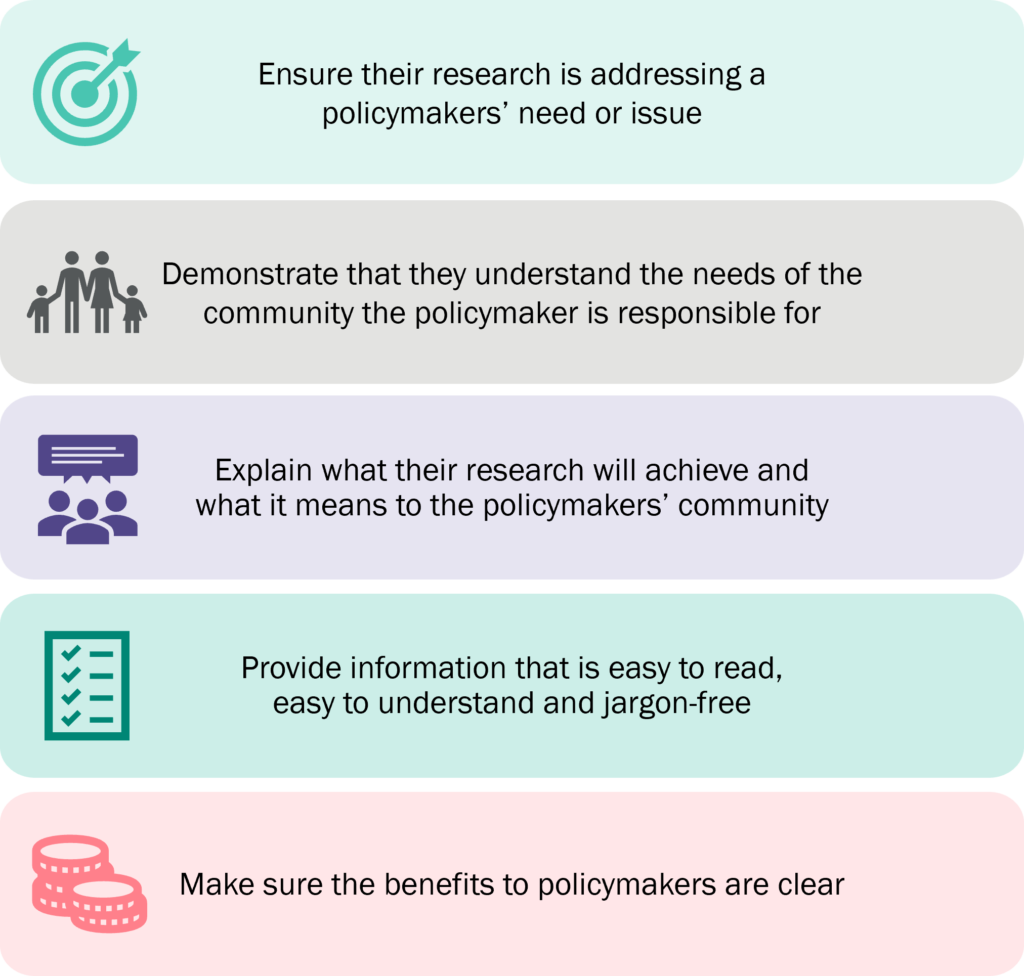Maximising communication and trust between researchers and policymakers
What is policy and policymaking?
The term policy is often used interchangeably with other terms and getting a hard and fast definition is difficult. A policy may be a set of goals or strategies to achieve specific outcomes. One of the most common definitions of a government policy is ‘what a government proposes to do’. This may be a high-level statement of intent or goal e.g., reaching net zero by 2050 or tackling obesity. A policy may also be a detailed procedure or set of instructions about how something should be done, such as how to manage diabetes care.
Whilst governments often have the ultimate decision-making and funding responsibilities, lots of other institutions and individuals are involved in policymaking. They include public servants, other political parties, the media, the public, interest groups, lawyers and scientists and researchers.
So how do researchers contribute to policymaking?
Policymaking is important because, at a high-level, it commits resources, and it commits organisational time around particular problems. At its heart, policymaking it is about bringing about change and that may include helping people see that something is a problem, identifying decision makers and generating a willingness to act from those decisions. This means that for researchers, it is not only about producing evidence but about providing a policymaker with a range of options for them to take the next steps.
Researchers or research projects need to provide policymakers with relevant information, evidence and cost benefits. Researchers should:

How do researchers develop trusted relationships with policymakers?
Building trust and communicating with policymakers should be seen as a key task of researchers and focusing on policy should be done from the very beginning of any research project. Communication and relationship building is also a team effort, it cannot be done by one person alone.
Trusted relationships can be achieved by:
- Recognising the importance of individual leadership and a personal approach;
- Engaging as early as possible with policymakers, getting their feedback along the way on reports and recommendations before they are produced;
- Testing key messages first with policymakers so you know they will understand.
Successful communication is all about people talking to people; the more we connect and develop relationships with one another the more effectively we can communicate and build trust. Policymakers are people too, so researchers need to engage with us at a personal level. They need to look for opportunities to get their name and face in front of policymakers, so they start to become familiar. They also need to network, network and network some more! Ultimately, researchers need to see the development of relationships with policymakers as a long game.
Find out more about policy in these interview clips with LongITools’ External Advisory Board Member, Dr Rupert Suckling.
Other clips in the ‘Talking policy’ series
What is policymaking and why is it important?
What information and resources do policymakers use when determining a policy?
Who needs to input to policy and how are policies agreed and then implemented?
What do policymakers need from research and development projects?